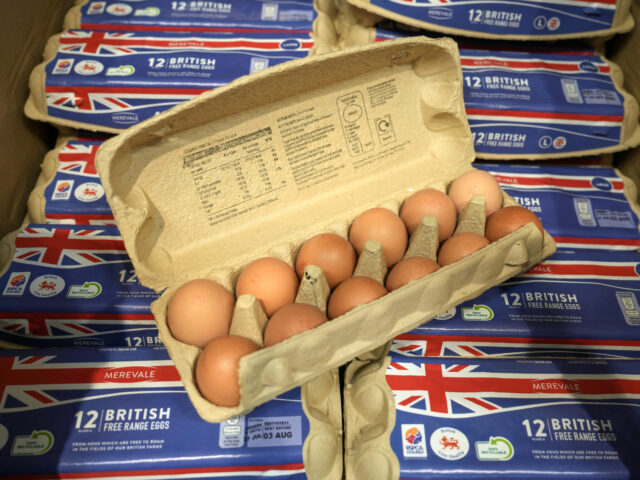Supermarkets in the UK have reportedly begun rationing eggs as the supply of the staple food is drastically impacted by both bird flu and the ongoing inflation crisis.
Rampant inflation and the ongoing bird flu epidemic have reportedly drastically impacted the supply of eggs in Britain, with multiple businesses in the country now reportedly rationing the food item as a result of a lack of availability.
The shortage could end up being a serious blow to many struggling households in the country that are already having to cut back on the likes of meat and fish in order to survive the ongoing cost of living crisis.
According to a report by state-owned broadcaster the BBC, farming organisations in the country have long warned that ongoing inflation arising out of massive lockdown spending and the Ukraine War would result in a serious reduction in egg supply, with many producers not seeing any benefit from price rises implemented by shops.
However, the outbreak of bird flu across Europe has added even further pressure to the supply of eggs, with The Times reporting that millions of hens have had to be culled due to outbreaks of the disease.
As a result, many businesses have seen availability for the staple food collapse, with supermarket chains Asda and Lidl having both implemented blanket rationing measures in order to secure their egg supplies, while others are reportedly seeing empty shelves as a result of the crisis.
The already-struggling hospitality industry also appears to be affected by the disruption, with pub giant Wetherspoons reportedly offering diners other items instead of eggs as part of its Full English Breakfast meal.
Supermarkets are now reportedly working with suppliers in the hopes of stabilising the situation, with the British Retail Consortium’s Andrew Opie describing the retail industry as being “experts at managing supply chains”, and that businesses are working to minimize the impact on customers.
While likely to only be a mild inconvenience for many, a drought in the supply of eggs could be extremely bad news for many Britons who are already struggling to pay the bills due to rampant inflation.
With Reuters reporting that many Britons appear to be cutting back on the purchase of meat and fish, eggs stood out as another nutritious source of protein that also contains various beneficial vitamins.
However, with the availability of such a low-cost item now reportedly disappearing from many shelves across the country, many will have to find other ways of cheaply meeting their dietary needs.
In this regard, many in the country are now turning to food banks in order to get by, with The Guardian reporting that the use of such facilities has reached record levels over the six months since April.
To make matters worse, many availing of the service are reportedly employed, with research showing that one in five using food banks operated by the Trussell Trust were from households where someone was employed.
“Although we have a large proportion of people referred to us who are on benefits, we are seeing more and more people who are working, but whose wages have not increased in line with the rise in the cost of food, fuel and other items needed for a basic living standard,” one facility manager in Blackburn remarked.
“We are talking about anyone who is in a minimum wage job, or people on zero hours contracts,” she added. “These people are often really struggling.”

COMMENTS
Please let us know if you're having issues with commenting.